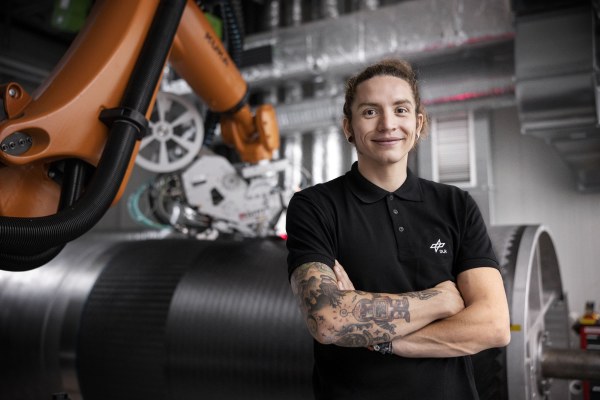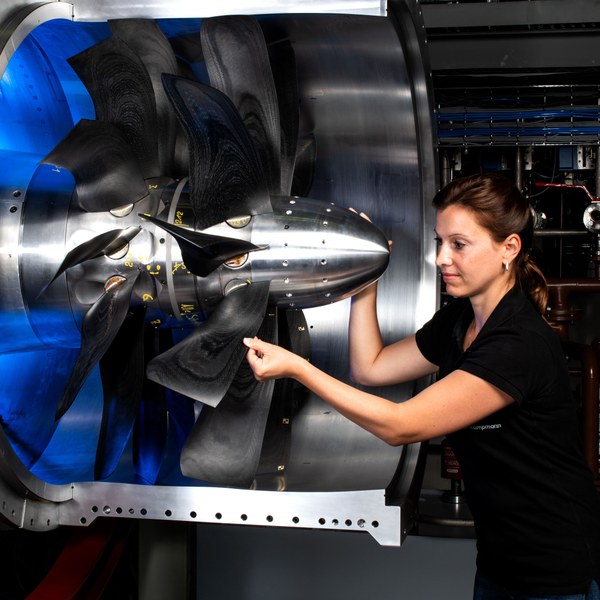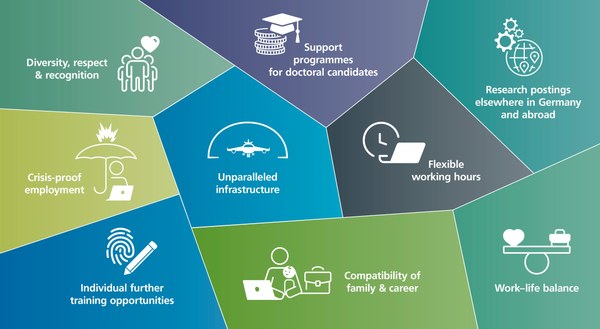Daniel Carcereri
Field of study: Electrical and telecommunication engineering
Now: Microwaves and Radar Institute
Daniel Carcereri first came to Germany from Italy as a Master's student at the DLR Microwaves and Radar Institute. Because he liked it so much there, he came back: as a doctoral student.
In this interview, he gives an insight into his work in the Satellite SAR Systems department and how he got off to a good start in his new home.
Daniel, what do you look forward to when coming to work in the morning?
Daniel: I definitely look forward to stimulating conversations with my colleagues. They help me gain new perspectives on the problems I am trying to solve, and to broaden my overall knowledge.
What are you researching or working on?
Daniel: In times of climate change, it is increasingly important to document its global effects. My research aims at developing new strategies for monitoring forests from space with the help of artificial intelligence. Vegetation parameters such as tree height, forest density or above ground biomass are commonly used for this purpose and act as proxies for the state of a forest.
„Developing new strategies for monitoring forests from space with the help of artificial intelligence“
In my work, I focus on estimating and analyzing these biophysical parameters by modelling their relationship with satellite imagery. Using readily available satellite data, as generated by the TanDEM-X or Sentinel missions, has the advantage that surveys can be done quicker and at larger scales, improving availability and reducing the costs when compared to complex and expensive measurements done on the ground.
As in other scientific fields, AI has been revolutionizing many aspects of our work. It currently is the main tool I use to process the increasingly available diverse and high-quality satellite imagery.

In practice, most of my work is spent on the computer programming, executing heavy processing of the satellite image data, and running and validating experiments.
For this purpose, at the Microwaves and Radar Institute we have access to multiple computing servers, both locally on site or in other data centers in Germany.
Where and how is your work being used?
Daniel: The goal of my work is the development of large-scale and frequently updated products that map the state of our forests, ideally flowing into multiple applications, such as the monitoring of natural resources, the detection of illegal activities, the study of climate change and risk assessment.
What brought you to DLR?
„I effortlessly found a new home among welcoming colleagues“
Daniel: I learned about DLR from my university professor during my years as a Master student. At the time I was looking for an experience abroad for my final dissertation, in which I could deepen my knowledge about radar systems and their application in Earth observation. I had the chance to complete my Master thesis at the Microwaves and Radar Institute at DLR. The experience I got from this first stay convinced me to apply again, this time for a PhD candidacy.
What was it like to move to Germany and start working at DLR?
Daniel: I personally extremely enjoyed the move to Germany, as I effortlessly found a new home among welcoming colleagues.
DLR has immediately provided a stimulating environment in which I could satisfy my personal curiosities. Outside of work, the location of the campus meant easy access to the surrounding nature and the beauty of the Alps.

What are the highlights of your work?
Daniel: In this past year, two events stood out to me. Firstly, I had the great opportunity of working for three months at JPL/NASA as a visiting scientist. A second highlight was the participation at the IGARSS conference, arguably the biggest yearly get-together of remote sensing and geoscience community.
In general, the greatest highlights come from the interactions with scientists from diverse realities. Whether these come from the involvement in common projects, or from the participation at international conferences, the engagement with these scientists keeps the work always engrossing.
Leave us a final thought.
Daniel: I would like to remark the significance of scientific research as a humbling experience of cooperation and personal growth. Each of us has the opportunity to play their small part in solving the challenges that we are currently facing in our society, while constantly raising the bar of what we can achieve as a community.




